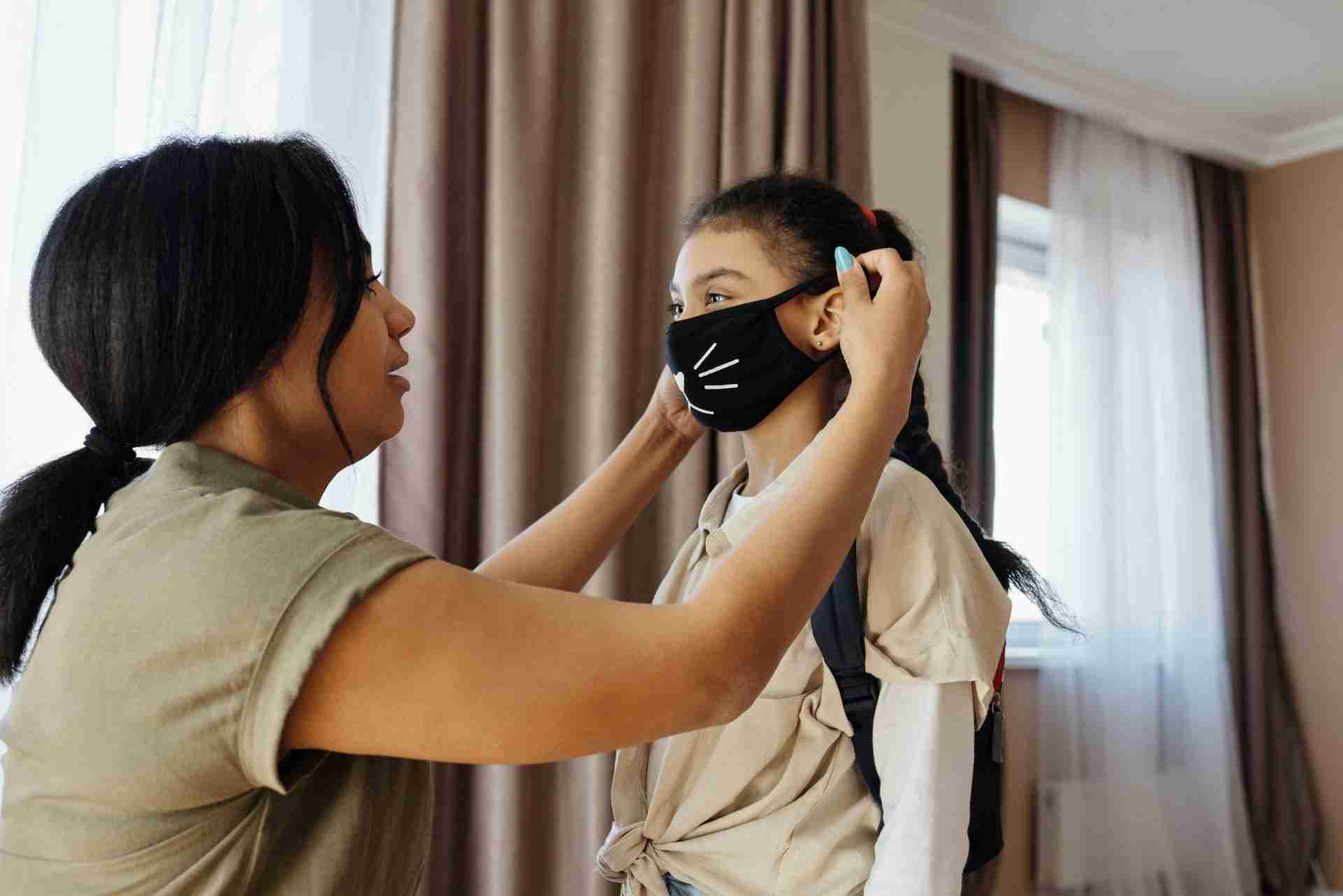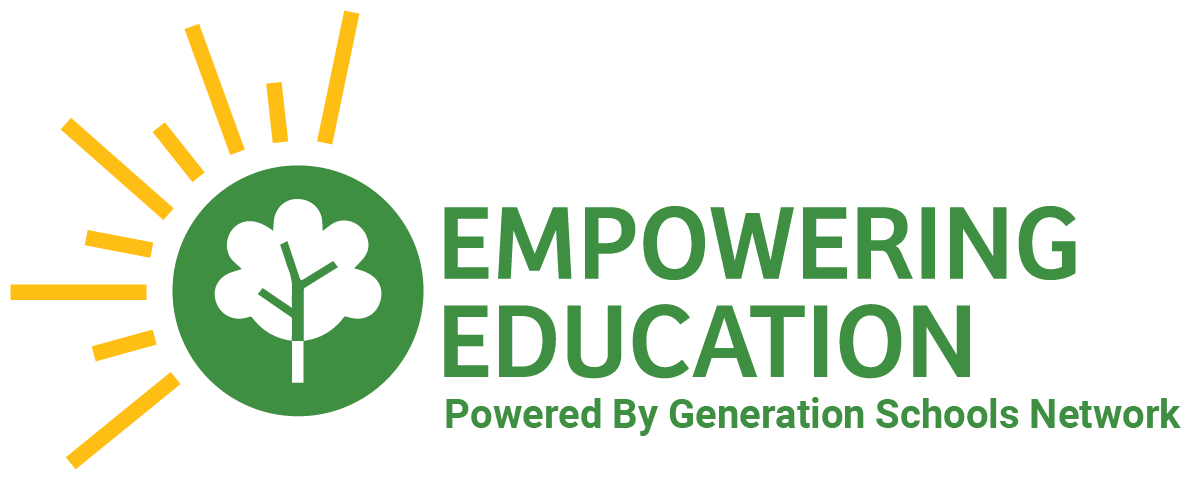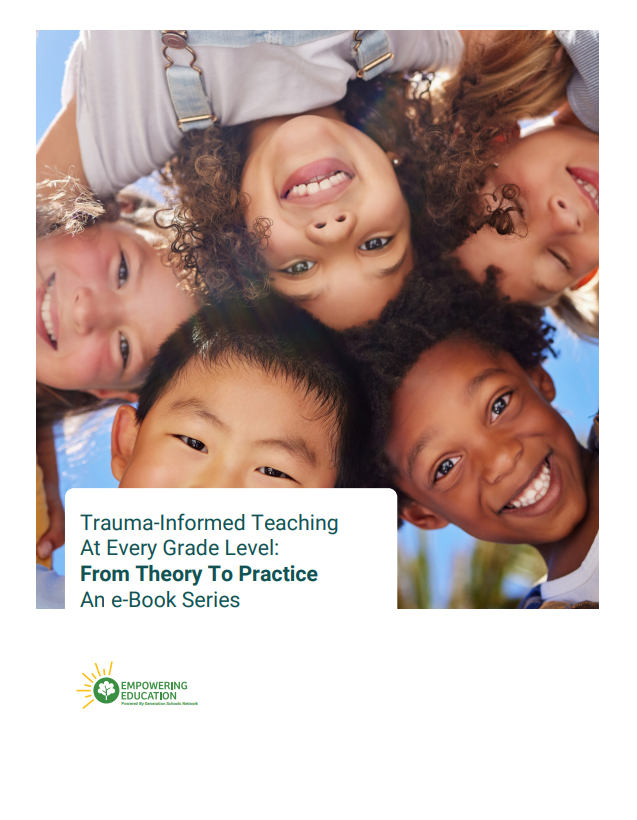The Key to Resilience: Being the Grownup
A Guest Post by Dr. Adelia Moore
When I first accepted an invitation to contribute a post to the Empowering Education Blog, the world was a different place. Had I written this in January, I would have written to you as a teacher or counselor, aiming to help parents harness their natural authority to maintain a healthy family life. But the world has changed. I write to you now as a parent in pandemic, as well as a professional who supports parents and kids.
We have all lost control and certainty over the future; we can’t gather except with those closest to us, and unless our work has reopened, we are managing work and children at home. We can’t help but worry about whether we or someone we love will get sick or even die. You surely have moments of discouragement and stress, if not something close to despair. And like many parents, you may worry about the effects of this extended social isolation on children’s development and well-being. Will they be resilient? How can you help? Since your emotional state is contagious, for better or worse, let’s make it for the better.
Ann Masten, one of the leading researchers in resilience in children, defines resilience as “the capacity of a system to withstand and recover from significant disturbances that threaten its adaptive function, viability, or development.” (Pathways to Resilience 2015). Her research has shown that one is not born with resilience; it is not a personality trait. Rather, it is a dynamic capacity that emerges from many sources, what Masten calls “ordinary magic.”
For children, capable caregiving, close relationships, problem-solving skills, and self-regulation are the top sources of resilience. Empowering Education promotes these valuable lessons at school, but at home, you as a parent, are incredibly important to the resilience of the children in your care. How they fare depends in large part on how you feel and the nature of the habitat you help create and sustain for them. Schoolwork is important too, of course, but it necessarily has to take a backseat for now.
Capable caregiving means that in your relationship with your children, you are a calm, confident grownup who works at being connected with others. You are not afraid to make demands, set limits, and talk about feelings, whether yours or your children’s.
What is capable caregiving? And what kind of habitat do children need? In addition to maintaining a household that keeps kids fed, clothed, and healthy, capable caregiving means that in your relationship with your children, you are a calm, confident grownup who works at being connected with others. You are not afraid to make demands, set limits, and talk about feelings, whether yours or your children’s. This is probably what you try to do most of the time. You don’t have to do it perfectly; there is plenty of room in daily life for mistakes and efforts to repair or do better next time. Still, many parents worry that they are not doing the right thing, especially now. They worry that their children will be hurt by chores, limits, and firmness, or can’t handle the independence that everyone being at home may require.
It’s actually a good time to worry less, and a good time, alone or with your co-parent, to consider what matters the most to you for your family. Make those values your priorities - whether time outside, reading together, make-believe play, resolving conflict, making things, a schedule including regular chores, maybe even math or writing - and let other things go. Clarity about what matters to your family life and relationships adds to your confidence, which in turn will help you embrace what I call being the grownup, or the natural authority that comes with the responsibility of parenthood.
Close to the authoritative parenting style identified by the now-classic research of Diana Baumrind; natural authority includes both love and limits - high levels of what Baumrind called both “responsiveness” and “demandingness.” This natural authority is communicated and sustained in relationships rather than in particular strategies and techniques. Humans are wired to be sensitive to the emotional states of others. The intimate dependence of children and the responsibility of parents only intensifies this.

Whether your child is three or thirteen, you (and your co-parent if there is one, in the same house or elsewhere) are your child’s primary resource - simply because you are the grownup, even if you don’t always feel that way. You are the big animal and your child is the small animal - like Mrs. Mallard in Make Way for Ducklings. This is true even when they get as big or bigger than you. Rooted in attachment, your “bigness” is in their reliance on you. When you communicate confidence, they feel it. “I am the grownup. I will take care of you.” Your body says it, your tone of voice says it, your hugs say it, the organization of the household says it. Even your limits say it. Your ability to be responsive and flexible says it too - to drop your work if need be so you can pay full attention to and be curious about your child’s feelings.
The trust and connection that you cultivate every day helps build your natural authority: Your children know that you love them, and that you will set reasonable limits and have reasonable expectations, even if they don’t always like them. Your certainty that you are the grownup will help you feel more confident and communicate that confidence to your child even when they resist or oppose your limits. If you are more confident in your natural authority, you will be calmer about pretty much everything. And everyone will be better for it. If you are calmer, your co-parent and child and household will be calmer too. Calm, like the virus, is contagious.
This contagion spreads with contact. Despite the invisibility of both the virus and calm, bodies do make contact without touching. The human capacity for emotional contagion can work in your favor. Embracing a stance of calm confidence gives your own body the same message that you give to your children: Things are going to be okay. This message will be a key factor in strengthening your children's resilience as you continue to shelter in place, and afterward. Your children take cues, literally, from you. If Mom or Dad (or Grandpa or Ms. Jones) is okay, I don’t need to worry. Even when you are feeling stressed and overwhelmed, remembering that you are the grownup can be an anchor for everyone.
This time of COVID is enormously stressful, but it gives parents and teachers and others who care for children the opportunity to more fully embrace their natural authority and communicate calm confidence to the children who rely on them.
Okay, you say, but how do I get that feeling when I am at the end of my rope? The BBC has a wonderful feature called “Postcards from Isolation” in which people from all over the world send in audio postcards about what they are doing to manage this extraordinary situation. There are great ideas, but more than that is the message: Each of us is a unique human being with a temperament, personality, and subjective experience of the world. Like a tree on a windy hillside, each of us must adapt to the environment in which we find ourselves.
You may lose your cool with a child’s tantrum, a fight with a partner, or a meltdown at the prospect of another meal. But I am sure you can find it again, one way or another. You may find it through stopping to breathe slowly, dancing to loud music, singing in the shower, baking, soaking in a hot bath after the kids go to bed, playing hooky from work and school for a half hour to play hide and seek. Different ways of coping work for different people in different situations. But it behooves you, and by extension your child, for you to find what works for you.
This time of COVID is enormously stressful, but it gives parents and teachers and others who care for children the opportunity to more fully embrace their natural authority, and communicate calm confidence to the children who rely on them.


